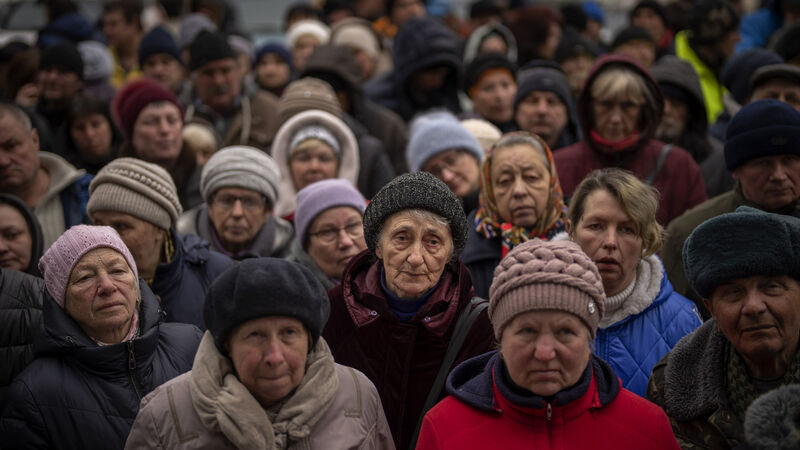Irish Examiner view: Domino theory of states that collapse put to test by Ukraine war

Ukrainians wait for a food distribution organised by the Red Cross in Bucha, on the outskirts of Kyiv. Picture: Emilio Morenatti/AP
Try from €1.50 / week
SUBSCRIBEAs the Russians further attempt to exacerbate the impending global food crisis by the bombardment of the strategically important Zadoka Bridge — one of the few remaining routes for the export of Ukrainian grain to the land border with Moldova and Romania — the world waits to see the next country whose government will fall from bankruptcy and chaos.
Before February, African countries imported some 44% of their wheat from Ukraine and Russia. About 22m tons of grain are stuck in the war-torn country and there is one month to get supplies out before the start of the next harvest.
Already a subscriber? Sign in
You have reached your article limit.
Annual €130 €80
Best value
Monthly €12€6 / month
Introductory offers for new customers. Annual billed once for first year. Renews at €130. Monthly initial discount (first 3 months) billed monthly, then €12 a month. Ts&Cs apply.
CONNECT WITH US TODAY
Be the first to know the latest news and updates
Newsletter
Sign up to the best reads of the week from irishexaminer.com selected just for you.
Newsletter
Keep up with stories of the day with our lunchtime news wrap and important breaking news alerts.
Newsletter
Sign up to the best reads of the week from irishexaminer.com selected just for you.
Monday, February 9, 2026 - 5:00 PM
Monday, February 9, 2026 - 5:00 PM
Monday, February 9, 2026 - 5:00 PM
© Examiner Echo Group Limited